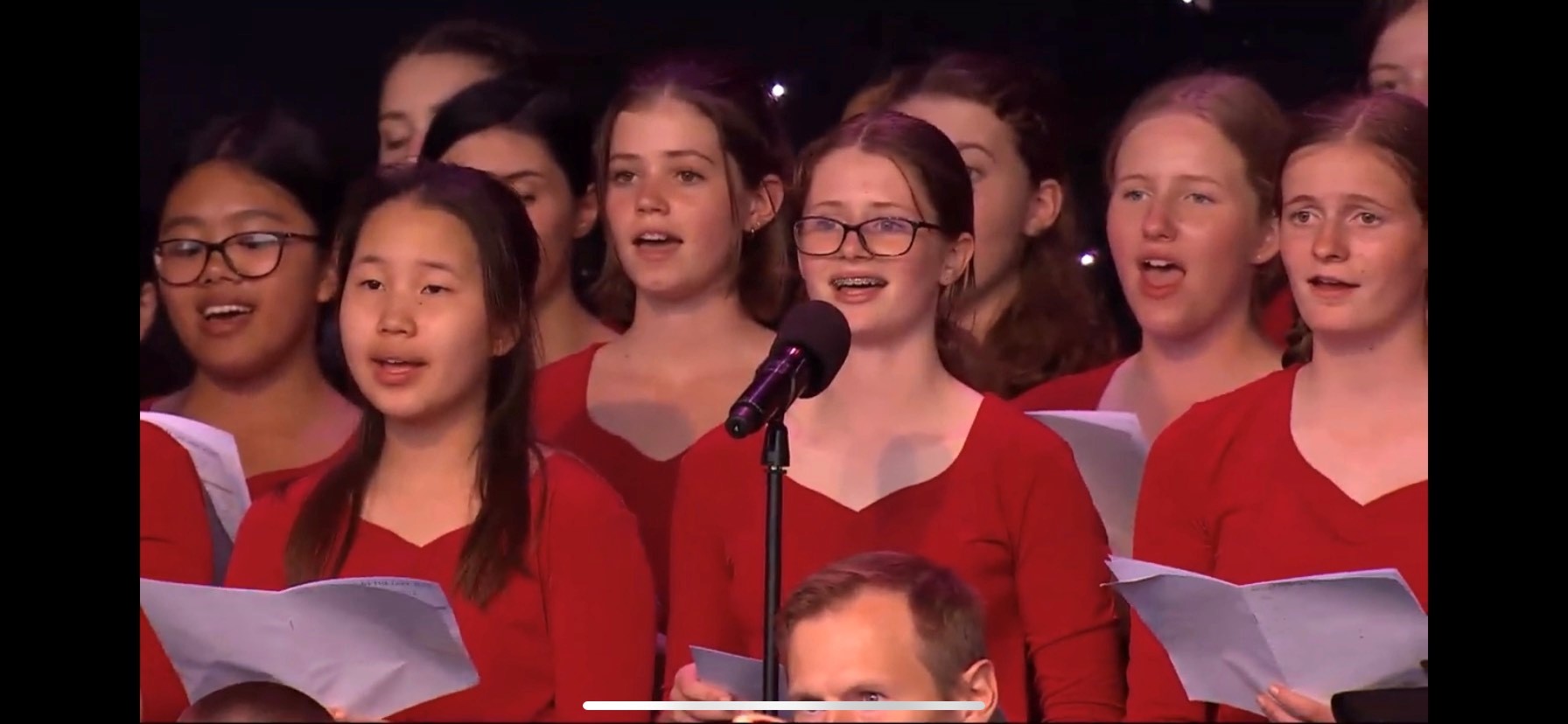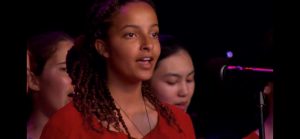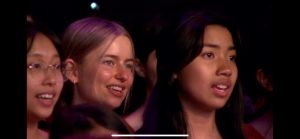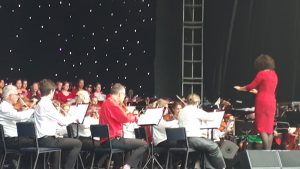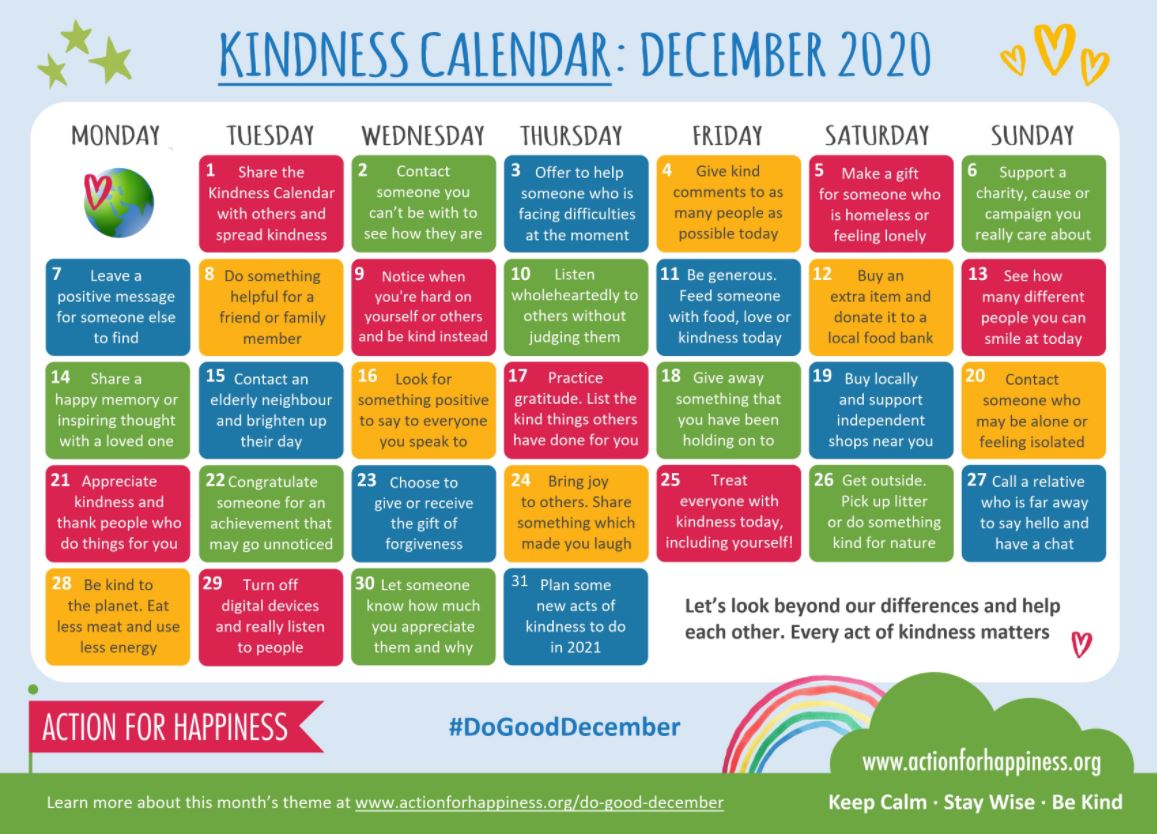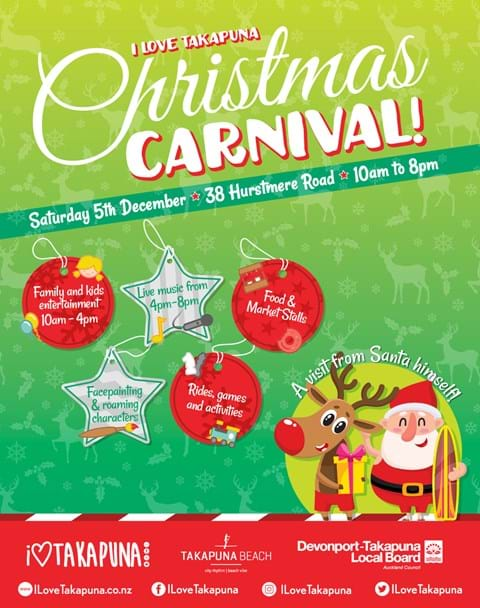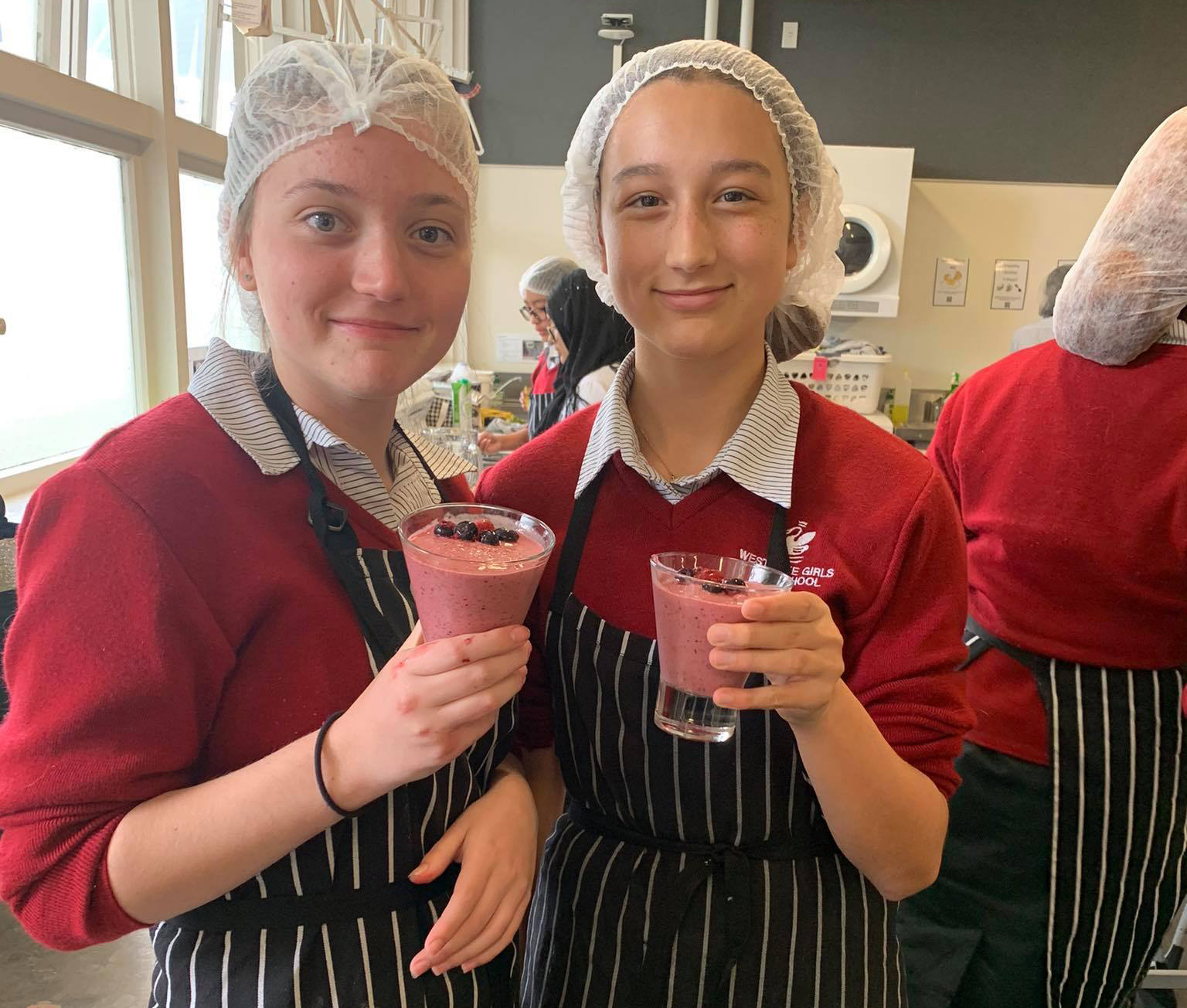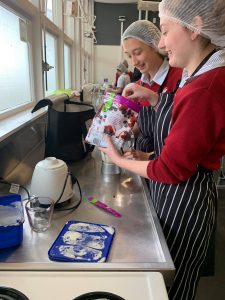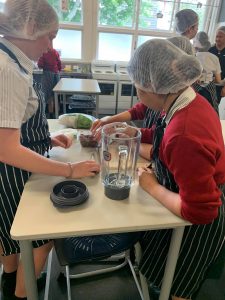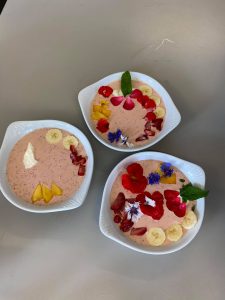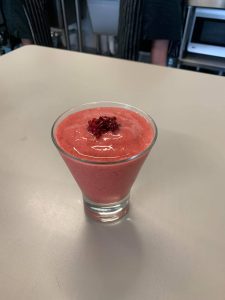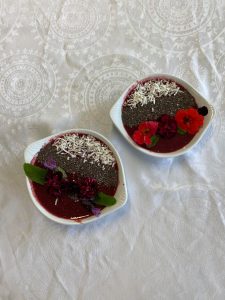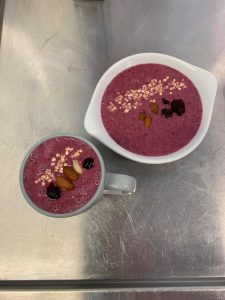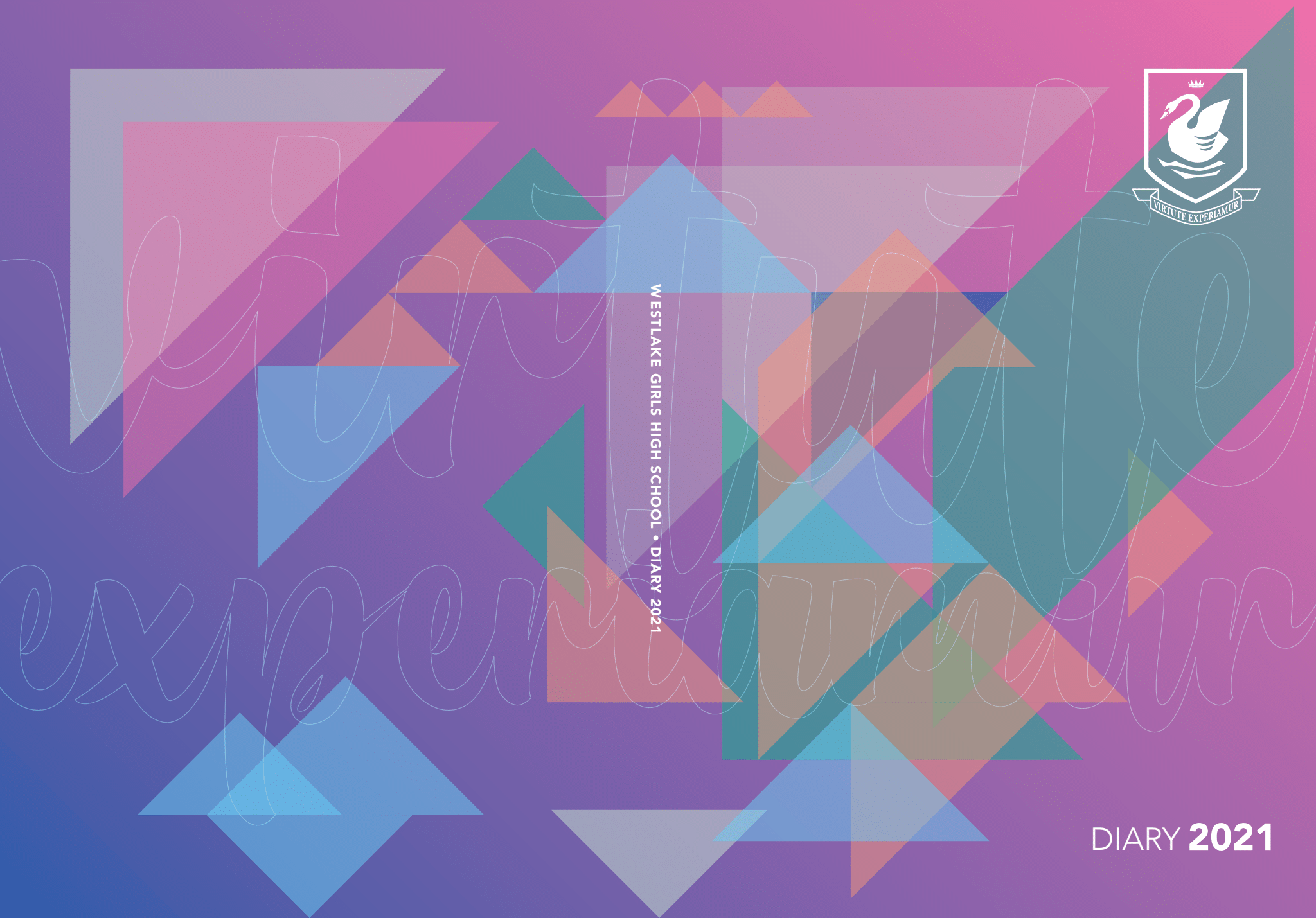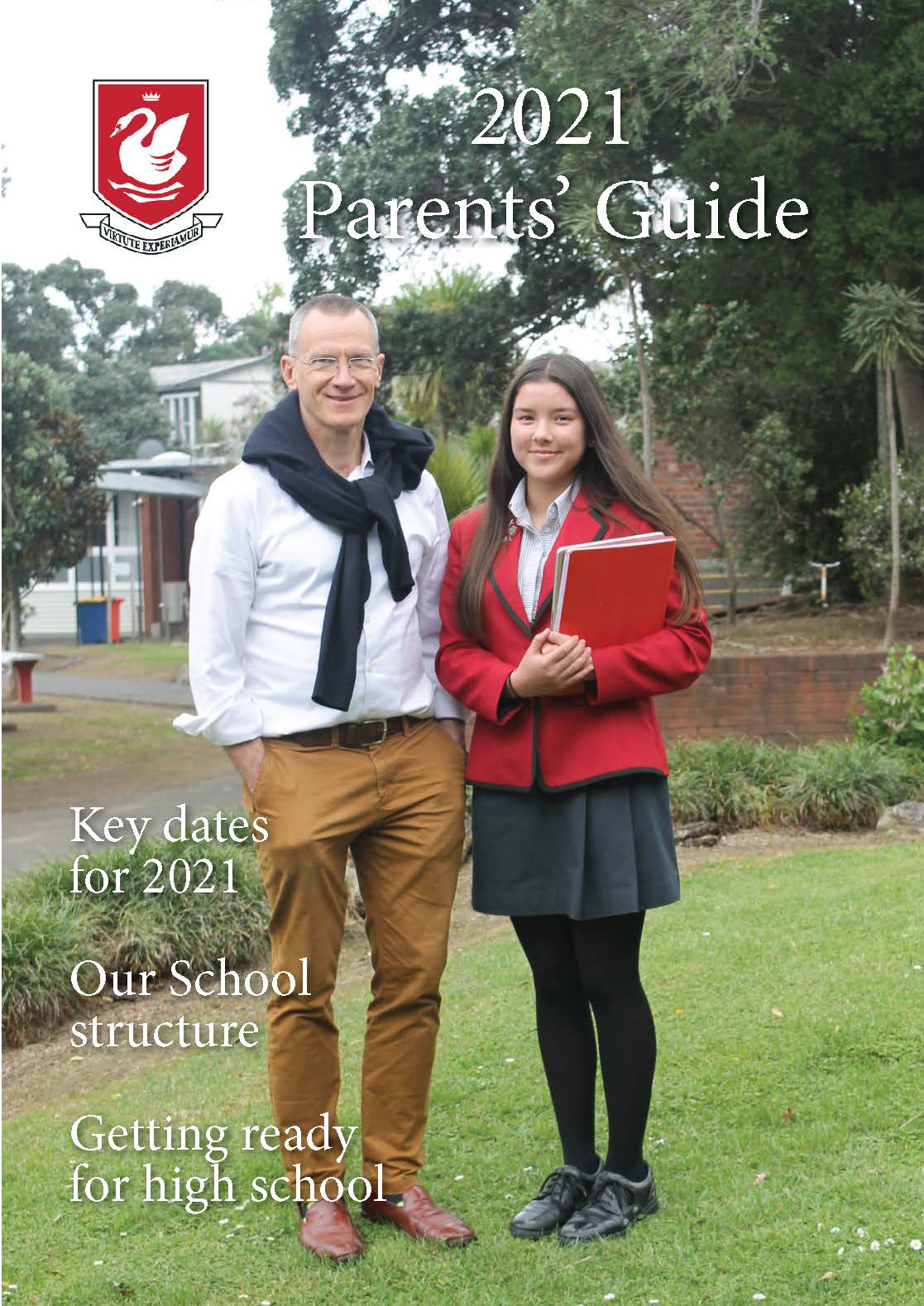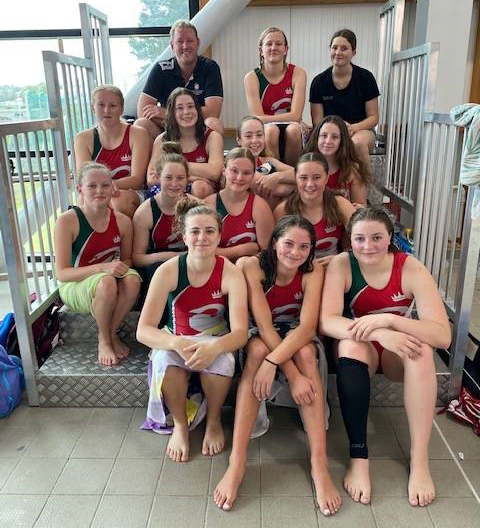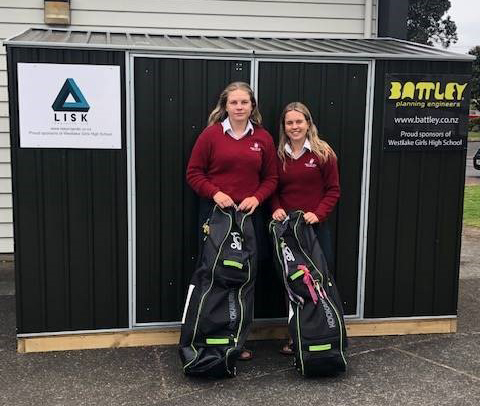We held our third Innovation Expo at Westlake Girls, on 30 November, where our STEAM students displayed their innovative prototype solutions to the community issue identified during their community project. Five groups were then selected to face a Shark tank. We have been privileged to have some amazing industry female role models as our judges.
- Mahsa Monaghegh- Director of Women in Technology at AUT, Senior Lecturer at AUT, Founder and Director of She Sharp, Recipient of Emerging Leader Award at the NZ Women of Influence Awards
- Camilla Weinstein- Talent Acquisition at MYOB, Entrepreneur and Director of Straw the Line
- Sarah Clearwater- Head of Community, Founder of Customer Xperience Collective, Founder of REFRAMR and Sarah Clearwater International
- Janet Van- Director / National Manager at Kiwibots and Westlake Alumna
- Zara Jillings- Partner Account Manager at Soul Machines and Westlake Alumna
Winners
Community and Innovation winners: Callenge for Change
Innovation Award Winner: Epilepz and Regional (Auckland) winners of the Tahi Rua Toru Challenge (see separate story)
Feedback from judges:
These Yr 10 students showcased digital skills and critical thinking well beyond their years, and it was so amazing to see how they are tackling the problems we see in today’s communities with innovative solutions and impact driven outcomes.
As an alumna of the school, I’m blown away by what these students are doing and I feel so proud to be a Westlaker. I’m excited to see so many future leaders and innovators in this room, knowing that there are so many more beyond those walls.
Thank you Susana Tomaz for organising the event and opportunity for us as well as these young women. What an exciting future Aotearoa has ahead of us if this is a snippet of what’s to come! – Janet
“Thank you so much for sharing this experience with us. It was great to see so many girls thinking about future problems and their solutions. Kudos to you for nurturing and motivating our next generation of wahine – Masha
Feedback from students:
The best part of STEAM this year would have definitely been the Community projects. We were put into groups based on a problem we were passionate about. From here we got to understand the problem more and create and develop a solution. This was honestly really fun as we got to connect with different people and build our collaboration skills. During our devolving stages there were a lot of trials and errors with coding within my teams app and games. Despite these challenges, we still tried, spending a lot of time learning about the different developing platforms we used (thunkable, Adobe and gamefroot). The whole process led us to the innovation expo, where parents and friends got to see what we had done. This would have been the best part of the year with STEAM as we were able to show off the apps we worked hard on throughout the whole year. My group got through to the shark tank where we pitched our idea to 5 judges. Although it was very nerve wrecking, it was an opportunity I wouldn’t pass for the world.
I recommend that everyone should do STEAM, the whole year long process of community projects is so much fun and valuable. It was an opportunity to be innovative and help others through our learning in STEAM. We loved every minute of it and learnt valuable skills such as resilience along the way. Covid was a challenge in our process but in the end it made our communication skills a lot better. The idea of creating something to help others motivated every group to make a successful prototype. Only 5 groups made it to the shark tank but every project was evidence of the amazing potential we have for the future – Hannah Richardson and Lizzie Prescott
As a part of our STEAM course, we got to identify a problem in our community and solve it using a design thinking process. My team’s community problem was casual discrimination against different cultures and religions at our school. We have developed a school website to help students stand up against discrimination and to support the victims of discrimination. No Justification For Discrimination – my group – got a special recognition, for the choice of their problem and their effort invested in its solution – Lina Amer
Background
Up to 65% of children entering school today will have a job that does not yet exist. the most in-demand occupations or specialties did not exist 10 or even five years ago, and the pace of change is set to accelerate.
According to the OECD 2030 Future of Education and Skills Project: “We need to replace old education standards with an educational framework that combines knowledge with the 21st century skills of creativity, critical thinking, communication and collaboration.”
Students need not just knowledge, but also skills, attitudes and values to thrive in and shape their own future for a more empowered global citizenship. This has never been more evident than in the current pandemic.
To meet the challenges of the 21st century, students need to feel that they can help shape a world where well-being and sustainability – for themselves, for others, and for the planet – is achievable. The OECD Learning Compass 2030 identifies three “transformative competencies” that students need in order to contribute to our world and shape a better future: creating new value, reconciling tensions and dilemmas, and taking responsibility.It also sets out an aspirational vision for the future of education, emphasising the need for students to learn to navigate by themselves through unfamiliar contexts, and find their direction in a meaningful and responsible way.
Our STEAM programme is well aligned to the OCED Education Learning Compass providing several opportunities for interconnections and interactions across different learning areas which was showcased at our Innovation Expo. Community projects create rich STEAM Power-Ed experiential learning opportunities for our students to develop transformative competencies for the future ahead.
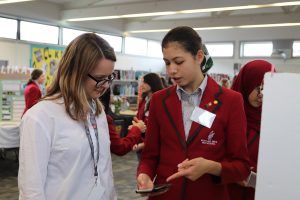
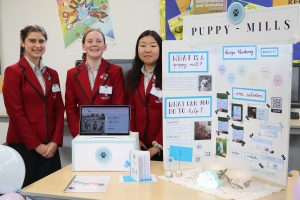
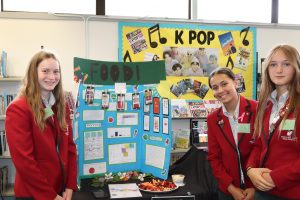
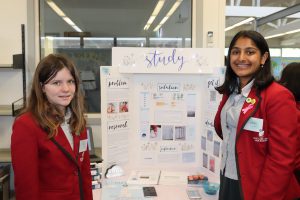
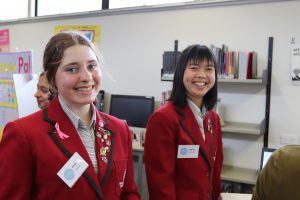
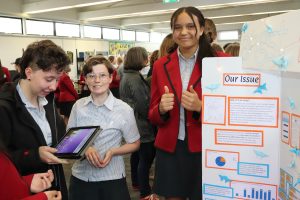
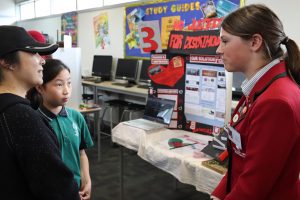
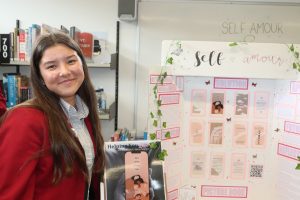
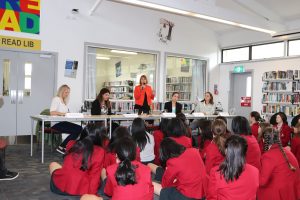
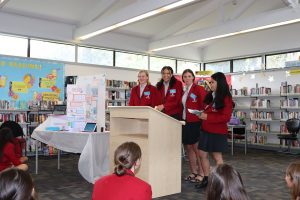
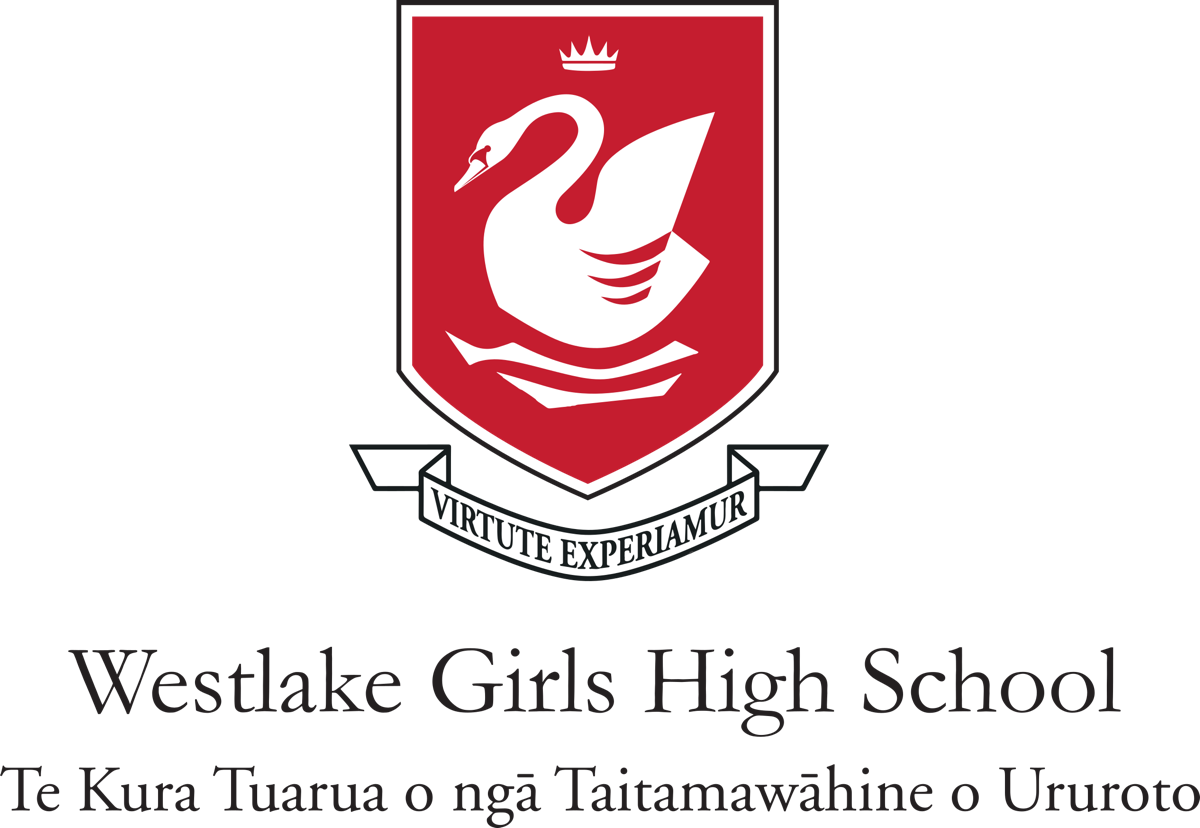

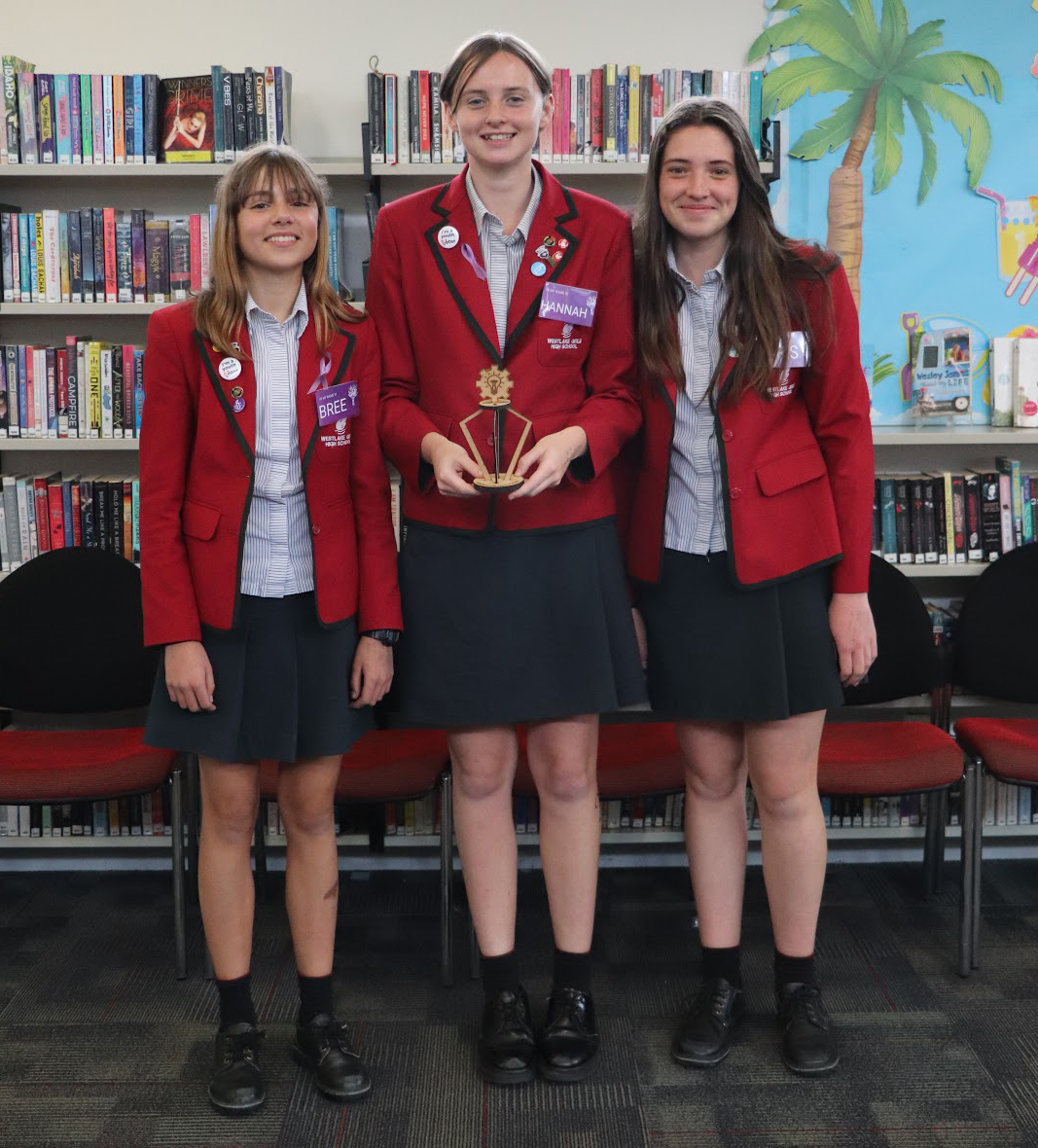
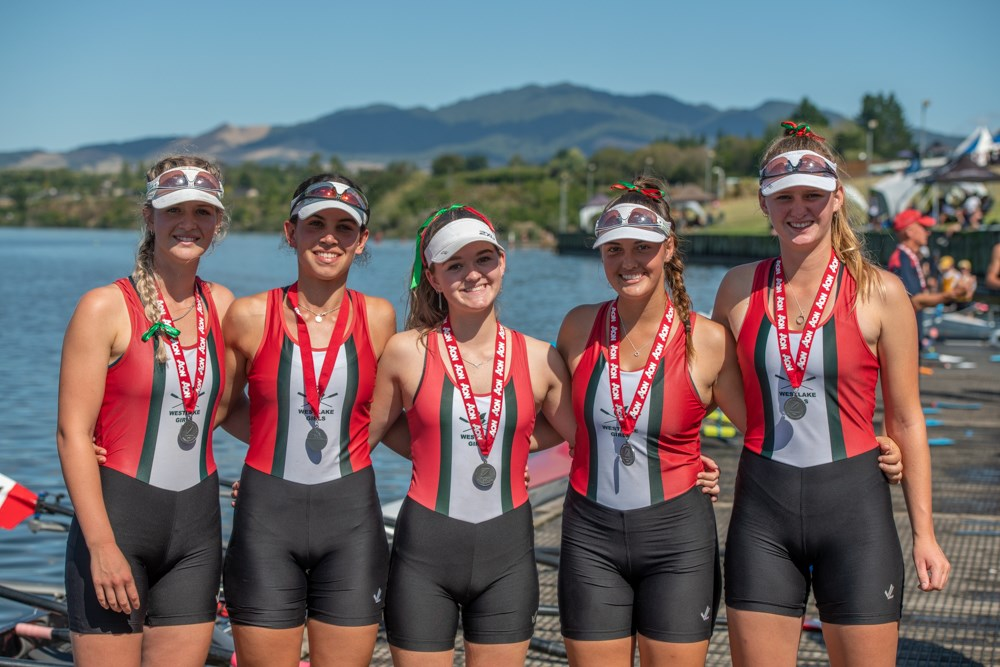
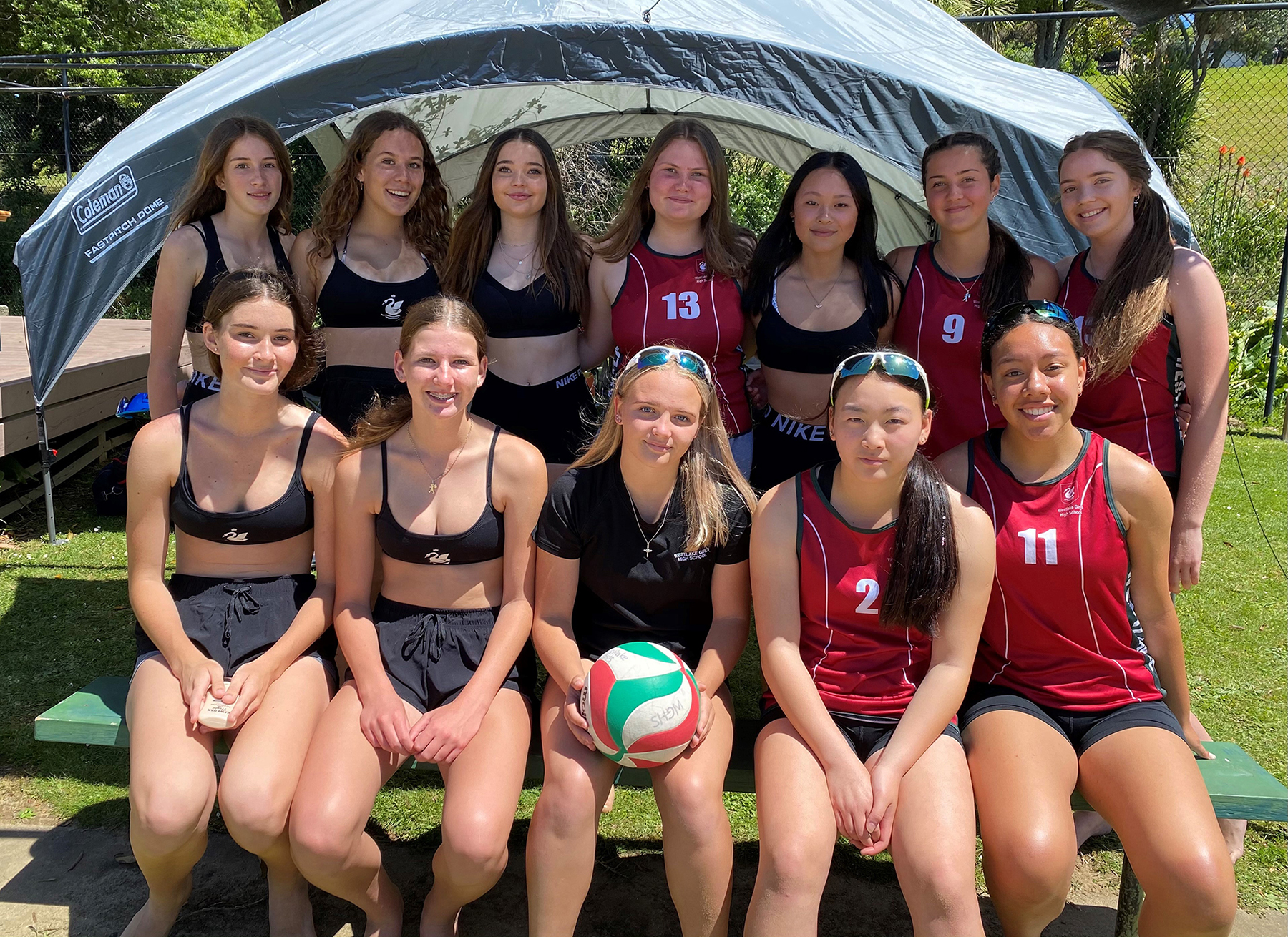
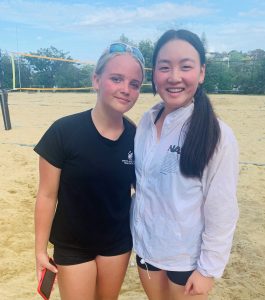 With a record 80 teams registered for the event, it meant that the competition needed to be split for the first time with Year 9s playing in the morning and Year 10s competing after lunch. Westlake Girls top Year 9 team of Tai Baillie and Jaz Zanders were untouched in the round robin stage before bowing out in the quarterfinals.
With a record 80 teams registered for the event, it meant that the competition needed to be split for the first time with Year 9s playing in the morning and Year 10s competing after lunch. Westlake Girls top Year 9 team of Tai Baillie and Jaz Zanders were untouched in the round robin stage before bowing out in the quarterfinals.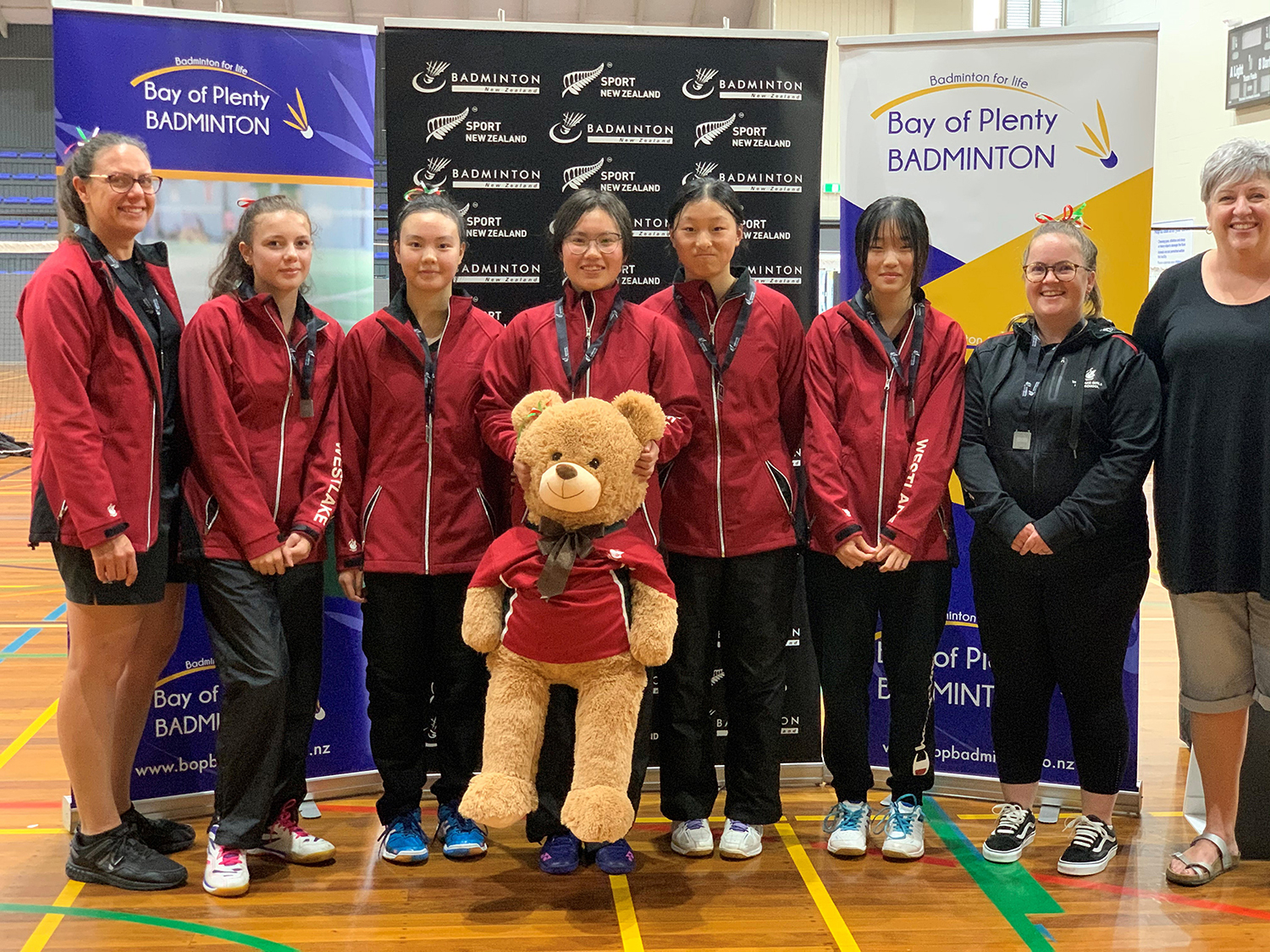
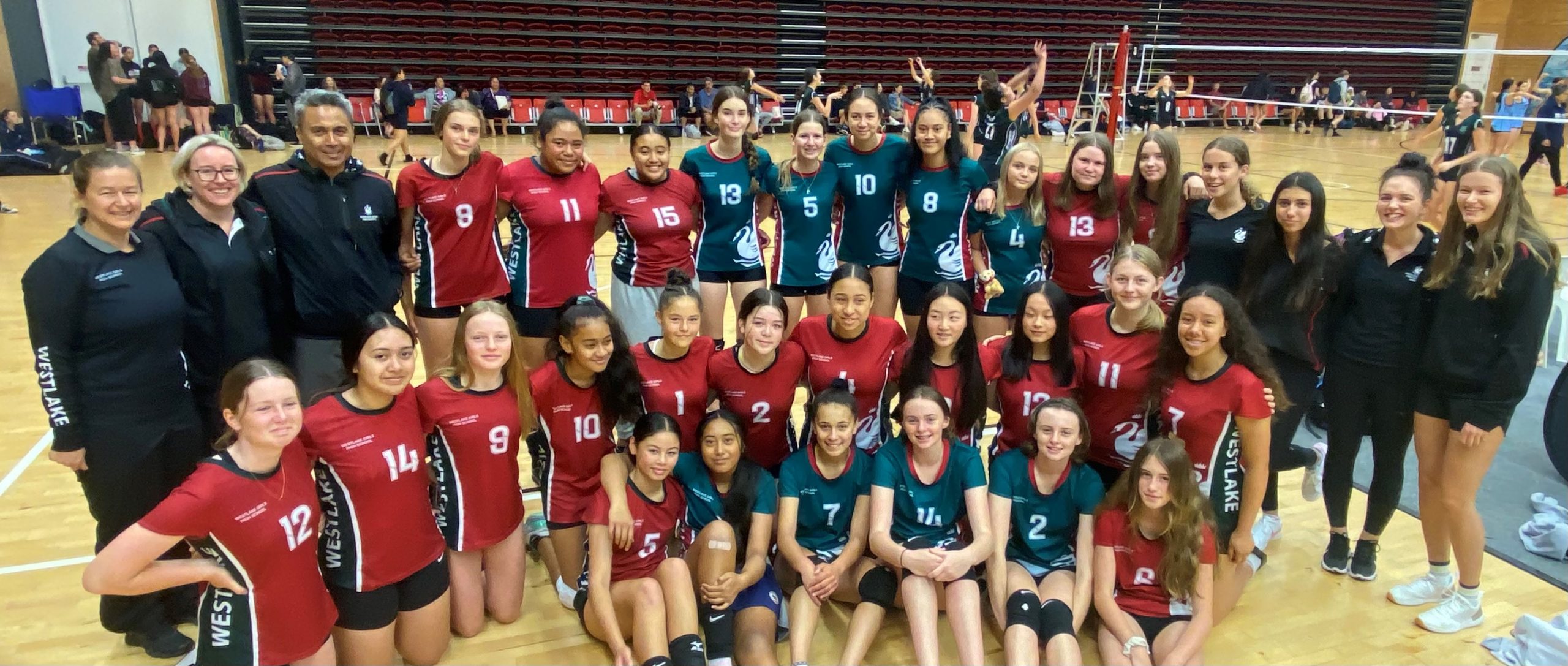
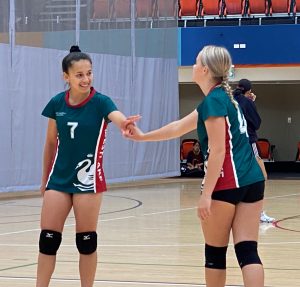 This year Westlake Girls entered three teams into the North Island Secondary Schools Junior Volleyball Championship at Mt Maunganui. The experience gained by the Year 9A team was invaluable as they faced some of the best teams in the North Island. Coached by Ashley McKenzie, the team finished a heartfelt 11th in Division 2.
This year Westlake Girls entered three teams into the North Island Secondary Schools Junior Volleyball Championship at Mt Maunganui. The experience gained by the Year 9A team was invaluable as they faced some of the best teams in the North Island. Coached by Ashley McKenzie, the team finished a heartfelt 11th in Division 2.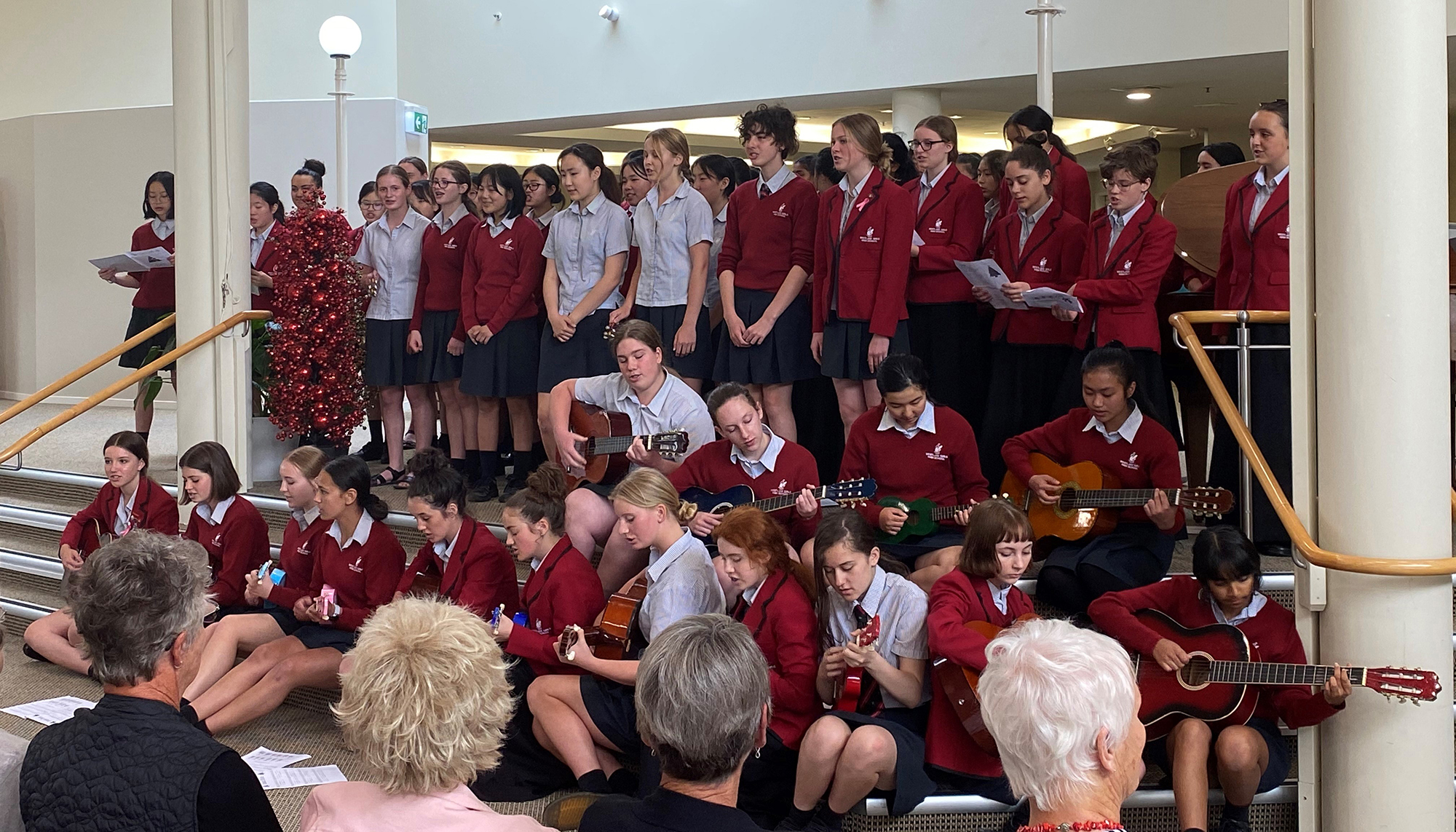
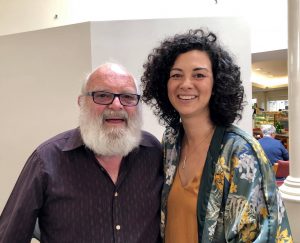 The choir performed three songs, including Ich Wollte Meine Lieb Ergosse, Double Double Toil and Trouble, and Cantar. This was followed by a Brahms Intermezzo from Hana Tani (piano). Hana was joined by Claire Xu (cello), Stephanie Zhou (Flute) to perform a Chinese Piece. Bella Allan-Moetaua, Emilie Murphy, Amelia Stace, Mackenzie Wills, and Princess Peregrino (Vocal Quintet) sang a beautiful rendition of Hark the Herald Angels Sing. The concert concluded with Christmas carols being sung by all, and accompanied by guitar, ukulele and orchestral instruments.
The choir performed three songs, including Ich Wollte Meine Lieb Ergosse, Double Double Toil and Trouble, and Cantar. This was followed by a Brahms Intermezzo from Hana Tani (piano). Hana was joined by Claire Xu (cello), Stephanie Zhou (Flute) to perform a Chinese Piece. Bella Allan-Moetaua, Emilie Murphy, Amelia Stace, Mackenzie Wills, and Princess Peregrino (Vocal Quintet) sang a beautiful rendition of Hark the Herald Angels Sing. The concert concluded with Christmas carols being sung by all, and accompanied by guitar, ukulele and orchestral instruments.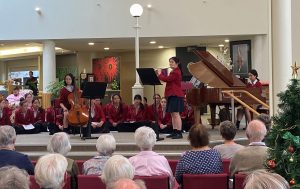
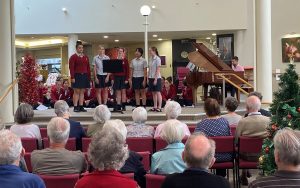
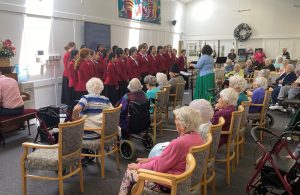
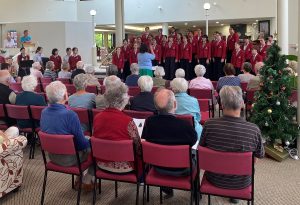
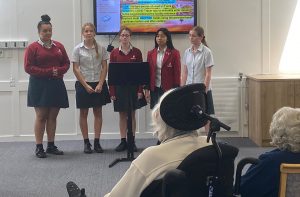
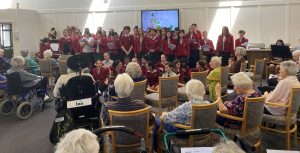
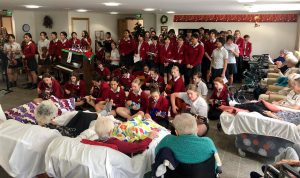
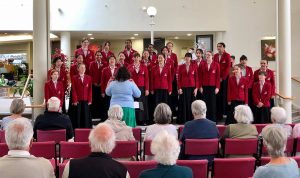
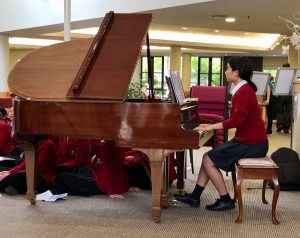
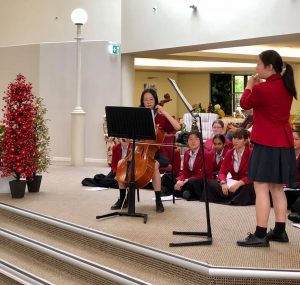
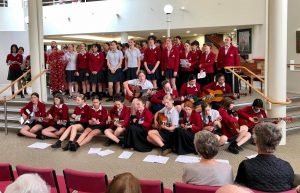
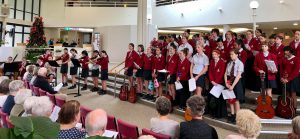

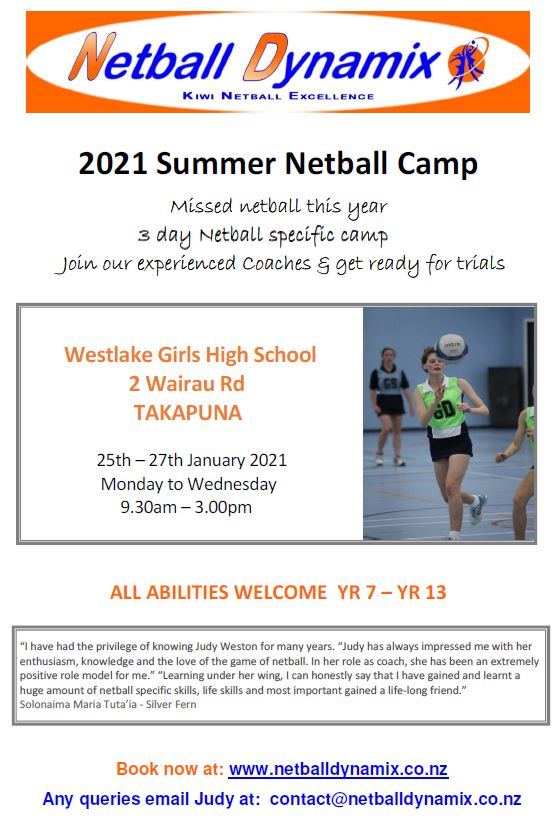
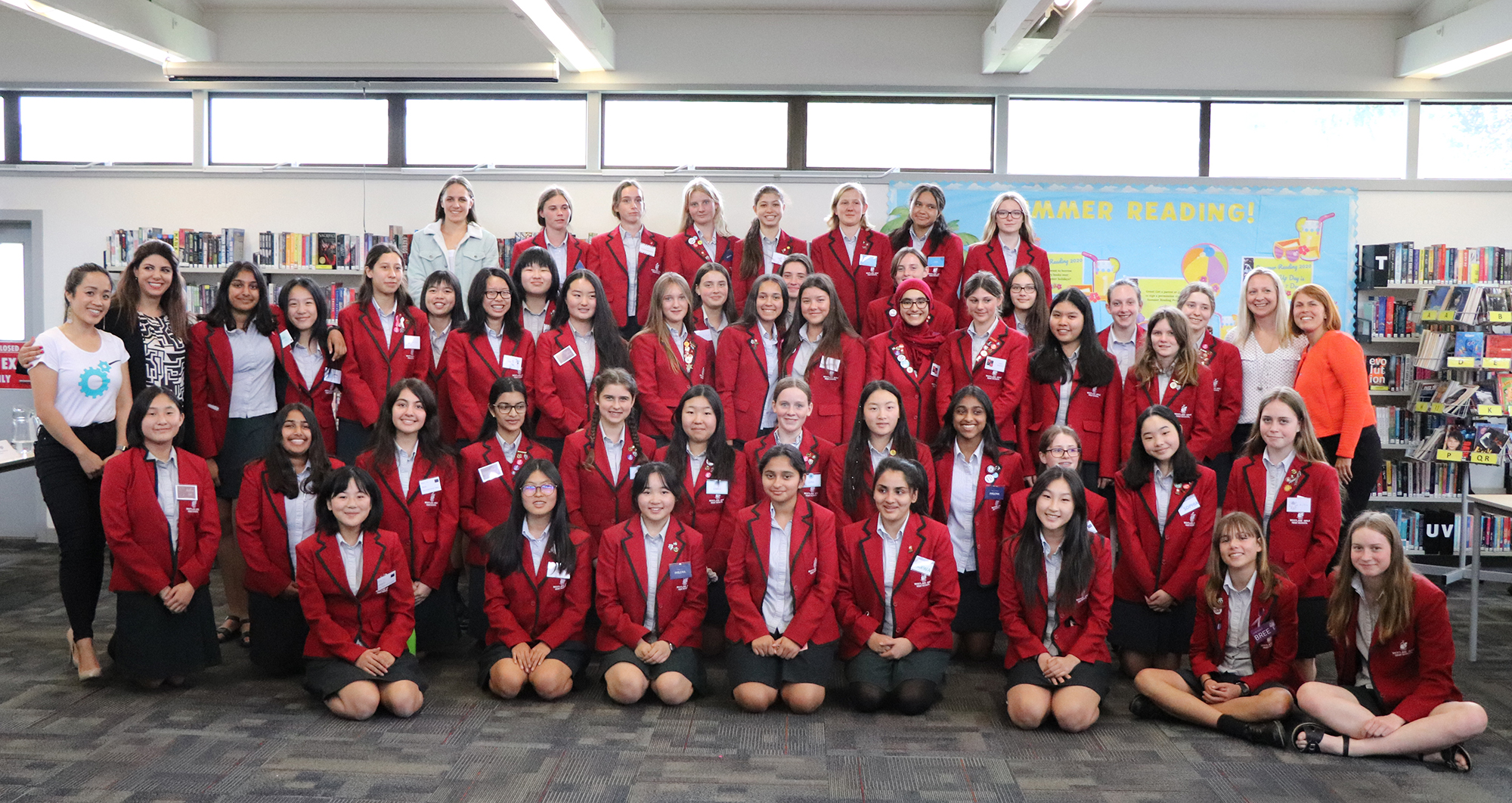










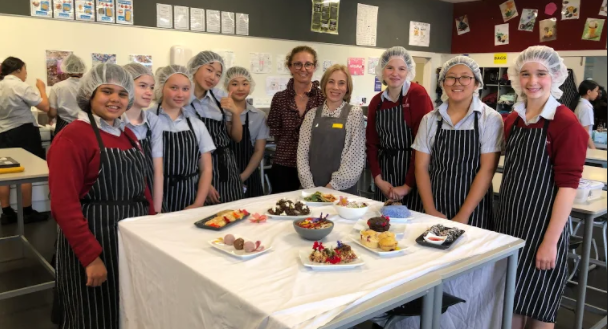
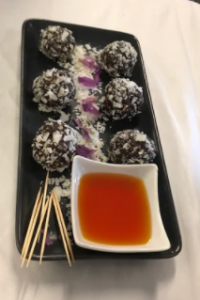
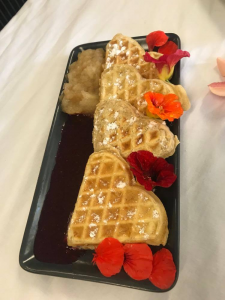 Y9 STEAM students were involved with developing a “Future Food” which is innovative, nutritious and sustainable and could be sold as a study snack in the school canteen. Students had to consider how to source their ingredients in a sustainable way, including through foraging.
Y9 STEAM students were involved with developing a “Future Food” which is innovative, nutritious and sustainable and could be sold as a study snack in the school canteen. Students had to consider how to source their ingredients in a sustainable way, including through foraging.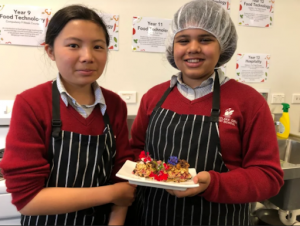 Overall, my STEAM food experience was great, I had loads of fun making and eating our innovative study snacks.
Overall, my STEAM food experience was great, I had loads of fun making and eating our innovative study snacks.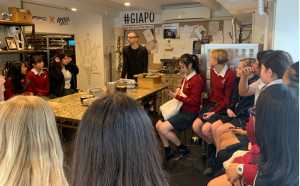 To further explore the creative process used in developing innovative products the students visited Giapo. Giapo himself is an incredible and talented chef, creating award winning products with application of new digital and scientific technologies and principles (CAD, 3D printing, freezing with nitrogen, etc).
To further explore the creative process used in developing innovative products the students visited Giapo. Giapo himself is an incredible and talented chef, creating award winning products with application of new digital and scientific technologies and principles (CAD, 3D printing, freezing with nitrogen, etc).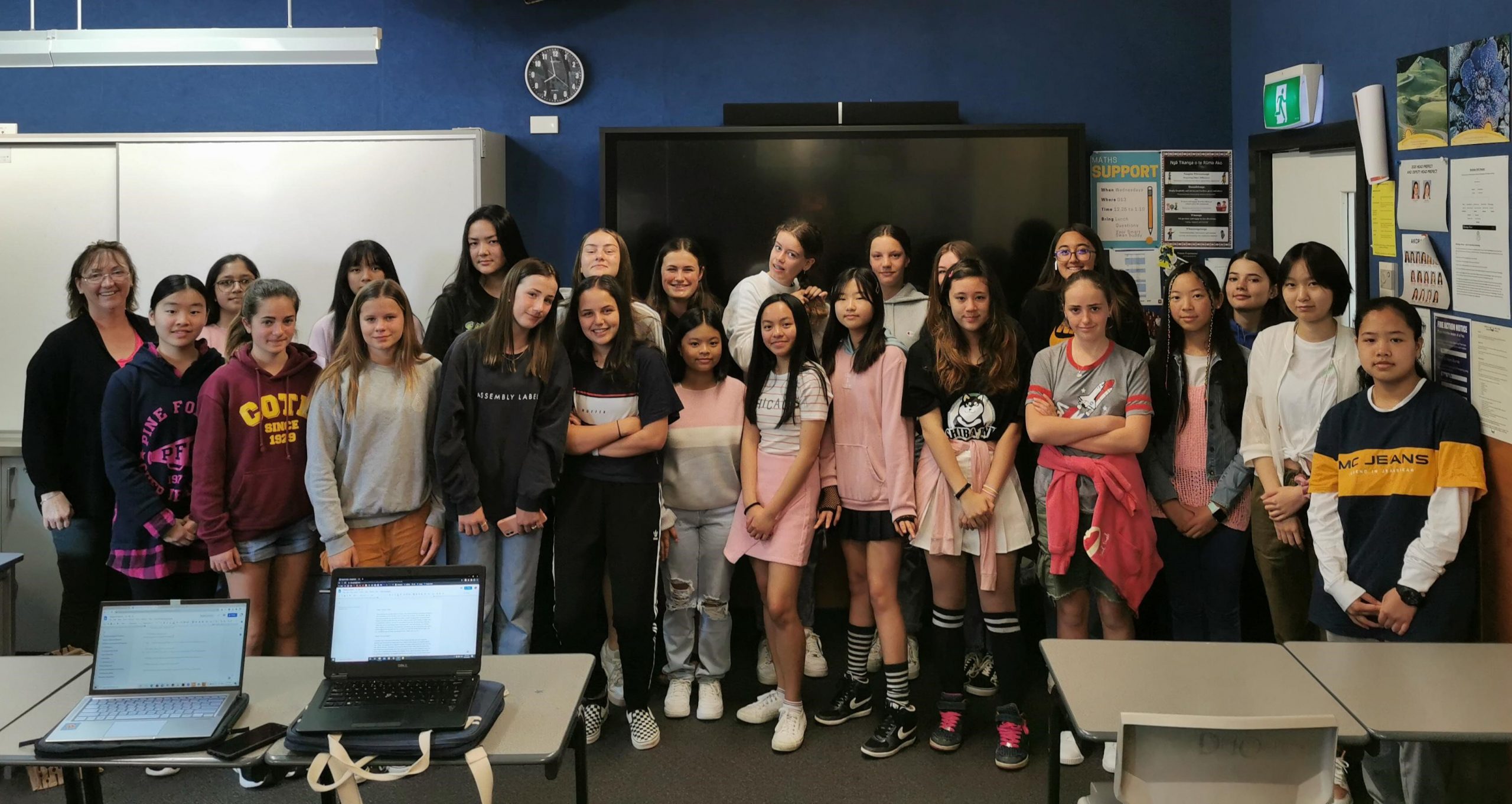
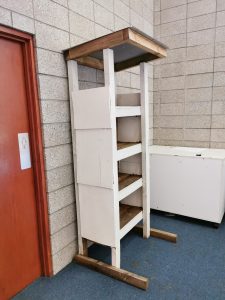 We have an exciting opportunity to collaborate with Sunnybrae Normal School on a new initiative which will be launched early next year as a Community of Learning (CoL) project.
We have an exciting opportunity to collaborate with Sunnybrae Normal School on a new initiative which will be launched early next year as a Community of Learning (CoL) project.
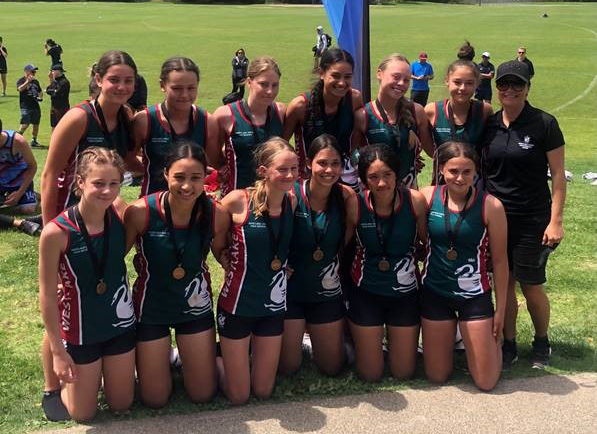
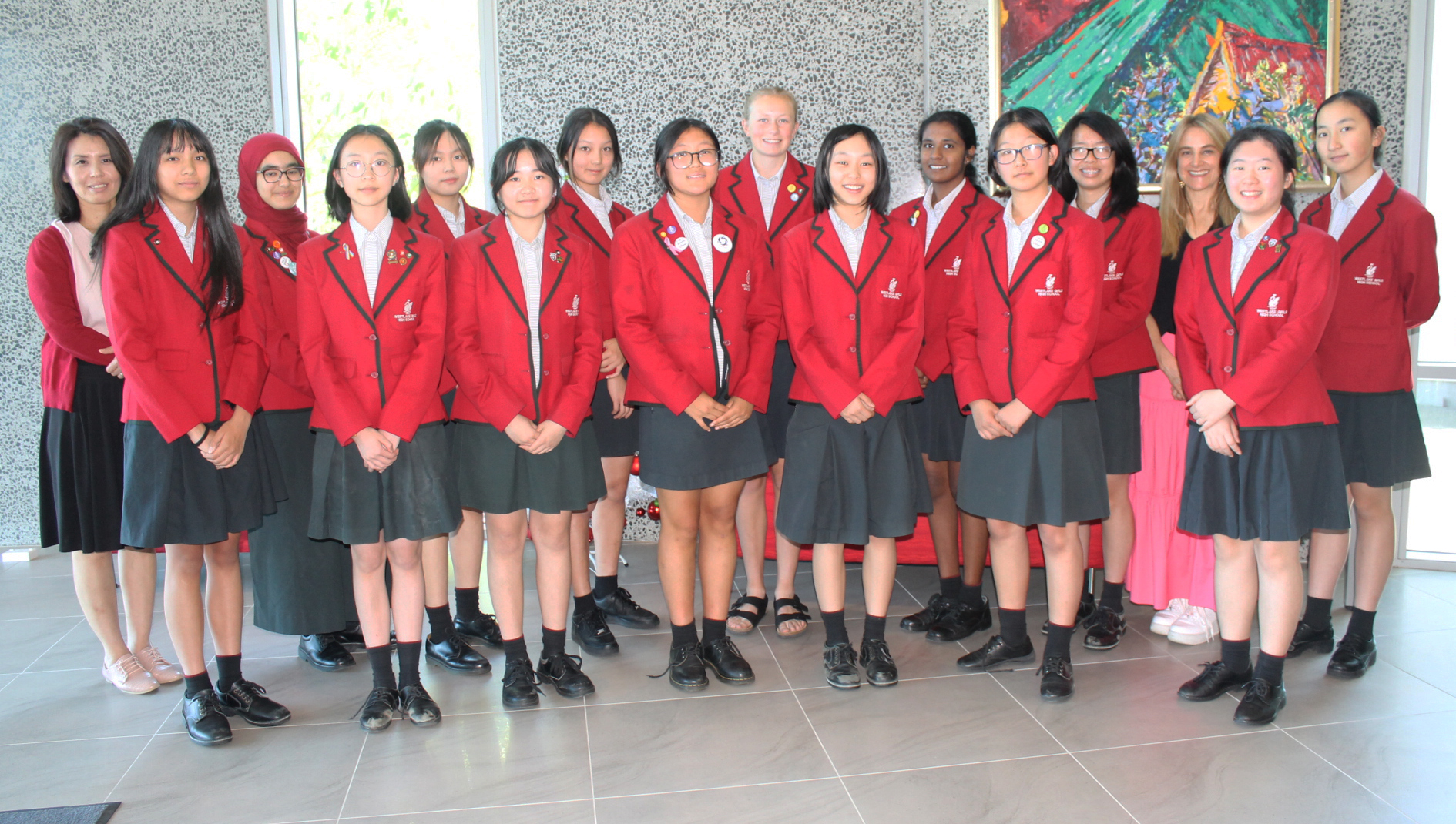
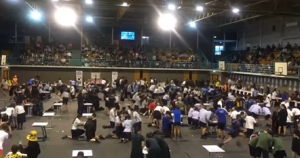 Junior Mathex is a maths competition that happens annually and is open to students from different year levels in schools across Auckland.
Junior Mathex is a maths competition that happens annually and is open to students from different year levels in schools across Auckland.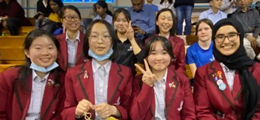
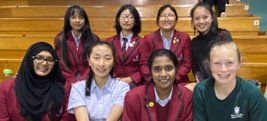

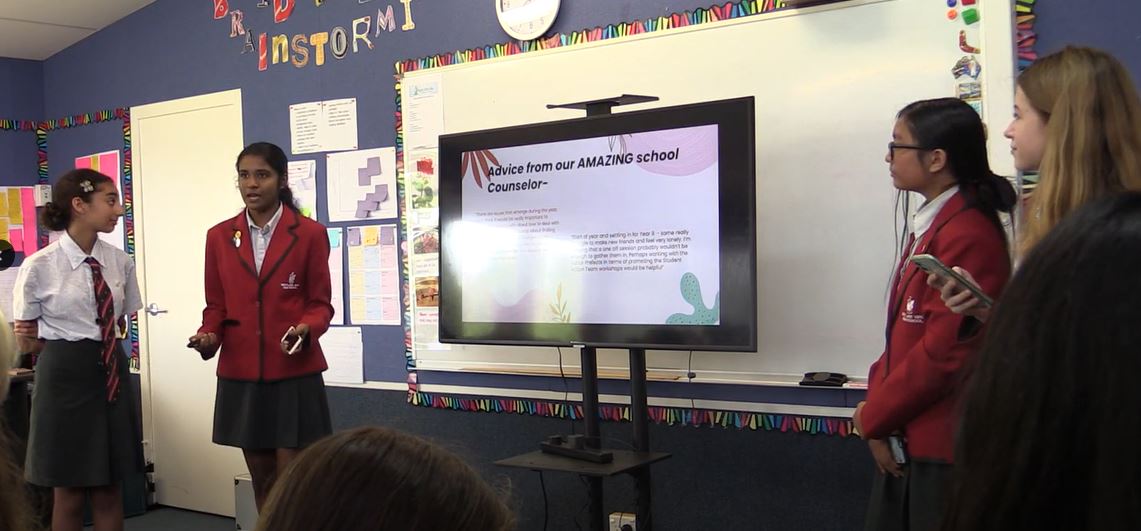
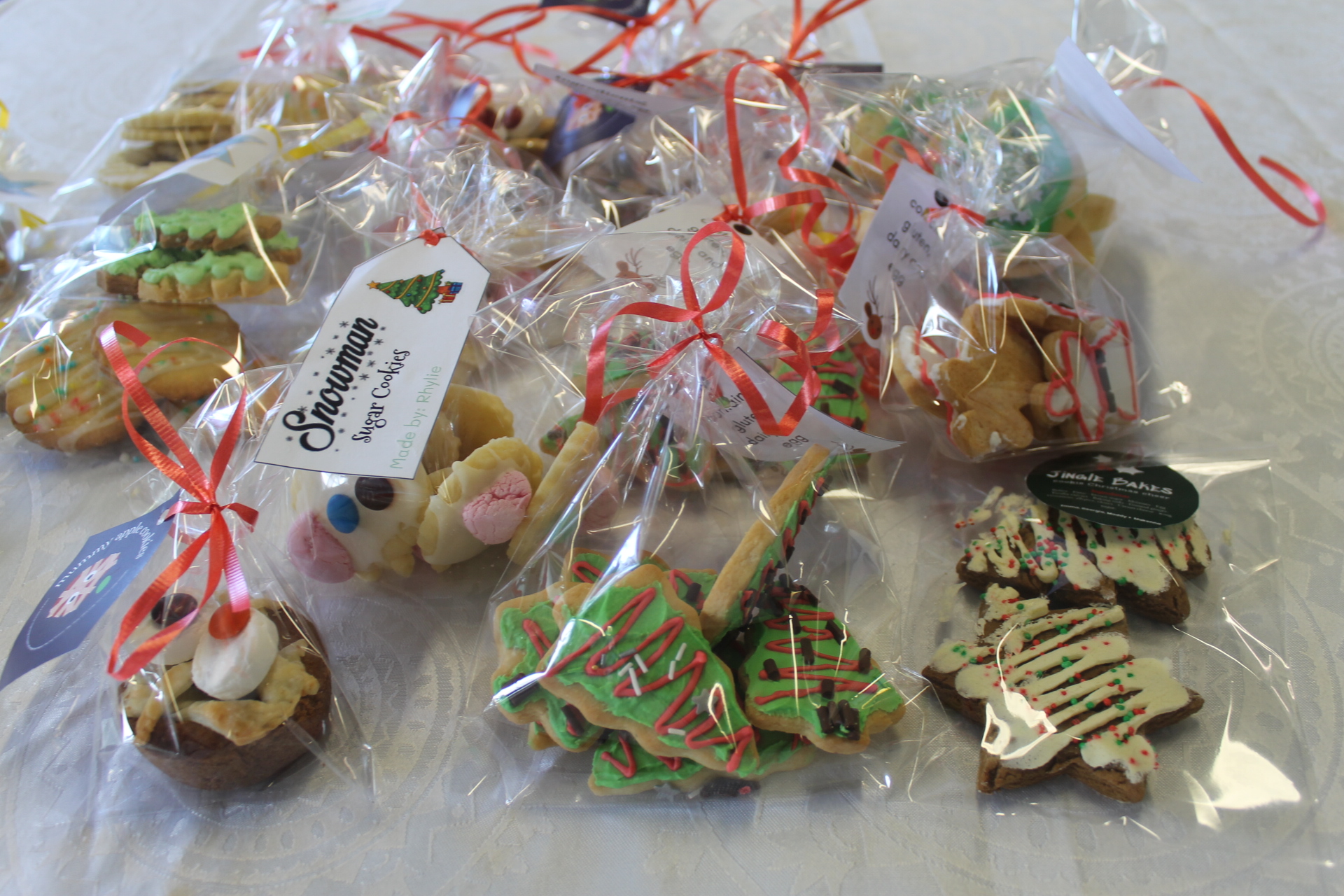
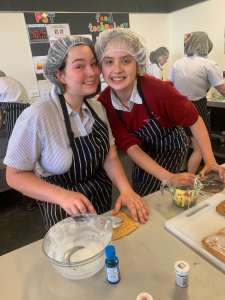 Year 10 Food Technology students have spent this term exploring new product development through the context of baking. By tasting a range of cookies currently available in supermarkets and researching their own favourite childhood cookies, they were able to identify attributes that appealed to them.
Year 10 Food Technology students have spent this term exploring new product development through the context of baking. By tasting a range of cookies currently available in supermarkets and researching their own favourite childhood cookies, they were able to identify attributes that appealed to them.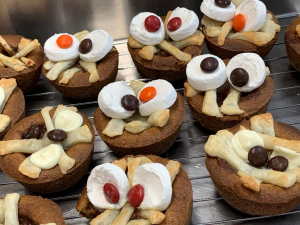

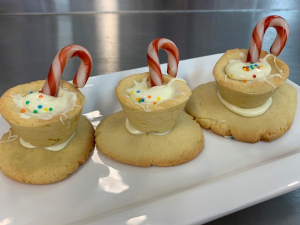
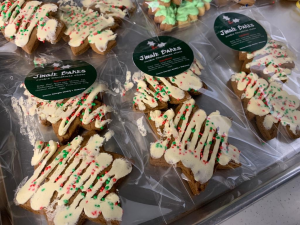

 Below are some simple ways to make small changes in your food choices which can potentially have a big impact on your health.
Below are some simple ways to make small changes in your food choices which can potentially have a big impact on your health.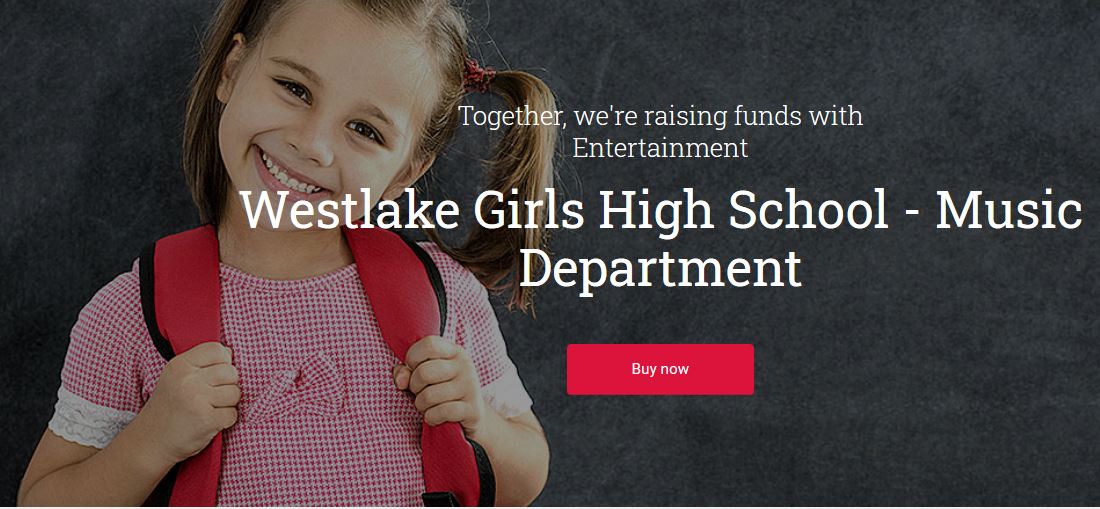
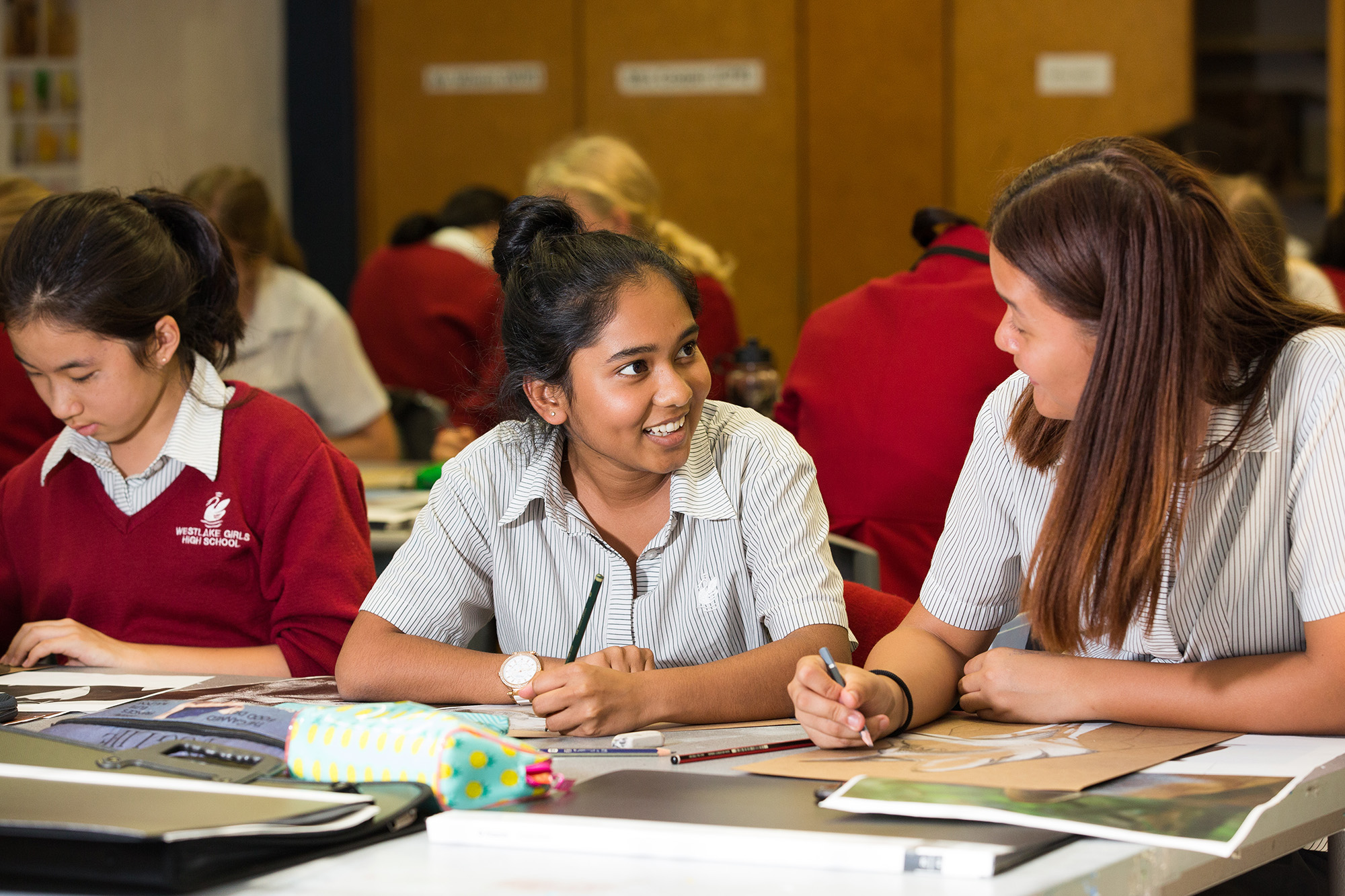
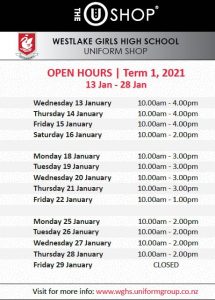

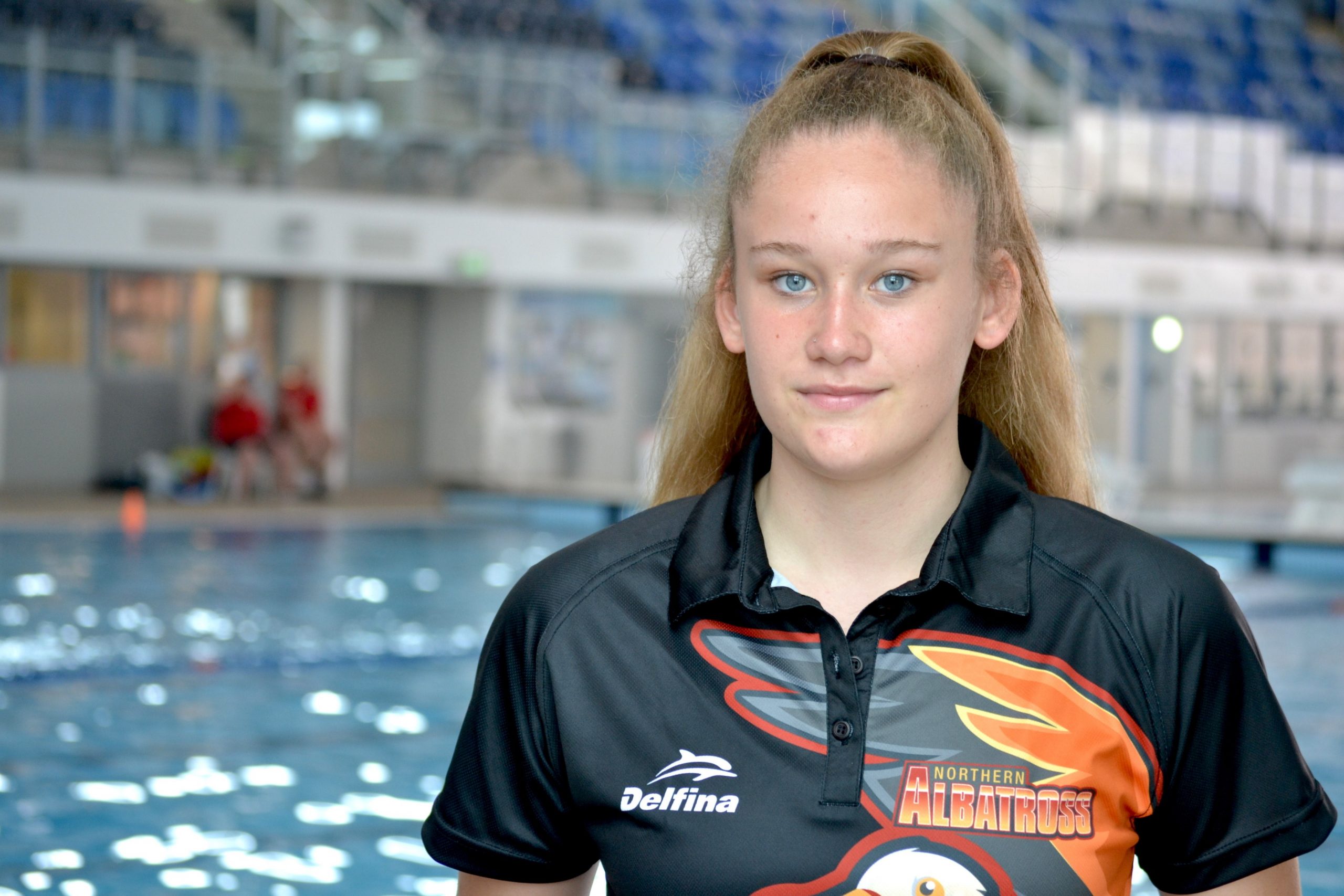
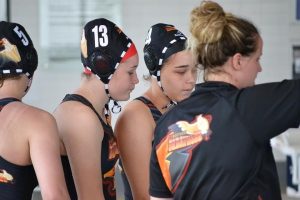 Year 11 student Islay Martin-Hill was recently selected for the inaugural New Zealand Waterpolo Premier League. This gave 60 of the best waterpolo players in New Zealand the opportunity to play in a four-week league held in Auckland during November, with games live-streamed on Sky sport next.
Year 11 student Islay Martin-Hill was recently selected for the inaugural New Zealand Waterpolo Premier League. This gave 60 of the best waterpolo players in New Zealand the opportunity to play in a four-week league held in Auckland during November, with games live-streamed on Sky sport next.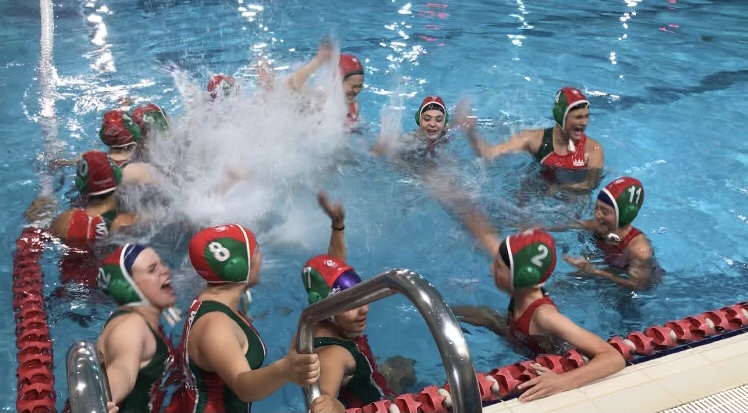
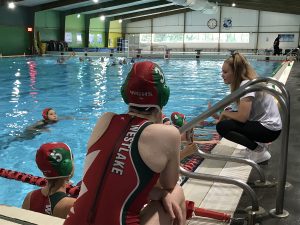 Last weekend, the Junior B waterpolo team competed in the 4-day North Island Year 9/10 Open 2 Division held in Auckland.
Last weekend, the Junior B waterpolo team competed in the 4-day North Island Year 9/10 Open 2 Division held in Auckland.